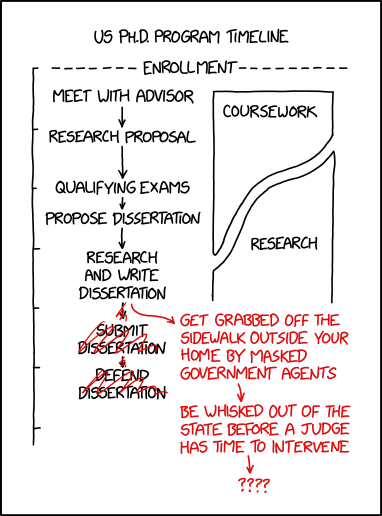






 Posted by msmash from Slashdot
Posted by msmash from Slashdot
From the tough-luck department: An anonymous reader shares a report: At Microsoft's annual executive huddle last month, the company's chief financial officer, Amy Hood, put up a slide that charted the number of users for its Copilot consumer AI tool over the past year. It was essentially a flat line, showing around 20 million weekly users. On the same slide was another line showing ChatGPT's growth over the same period, arching ever upward toward 400 million weekly users.
OpenAI's iconic chatbot was soaring, while Microsoft's best hope for a mass-adoption AI tool was idling. It was a sobering chart for Microsoft's consumer AI team and the man who's been leading it for the past year, Mustafa Suleyman. Microsoft brought Suleyman aboard in March of 2024, along with much of the talent at his struggling AI startup Inflection, in return for a $650 million licensing fee that made Inflection's investors whole, and then some.
[...] Yet from the very start, people inside the company told me they were skeptical. Many outsiders have struggled to make an impact or even survive at Microsoft, a company that's full of lifers who cut their tech teeth in a different era. My skeptical sources noted Suleyman's previous run at a big company hadn't gone well, with Google stripping him of some management responsibilities following complaints of how he treated staff, the Wall Street Journal reported at the time. There was also much eye-rolling at the fact that Suleyman was given the title of CEO of Microsoft AI. That designation is typically reserved for the top executive at companies it acquires and lets operate semi-autonomously, such as LinkedIn or Github.







 Posted by from MMO Champion
Posted by from MMO Champion
Azeroth Living: A Look at Housing Rewards
Originally Posted by Blizzard
(
Blue Tracker /
Official Forums)
Knowing what tools you have to decorate your home is one thing but knowing how and where to get your decor is another. Step into our showroom as we open our catalogue on Housing rewards and share more information about what you can expect when seeking to outfit your Azeroth home in style.
Welcome home, Adventurers!
At the end of our
previous article, we asked a few questions regarding the source of decorations and how professions fit in. Today, we’re going to answer those questions, talk through our philosophies for Housing rewards, and provide a few more details on the decoration “economy.”
Before starting we wanted to state our usual disclaimer: This is still a work in progress and names and details may change between now and launch, but this is directionally where we’re aiming.
Setting up Our Guiding Principles
We began our discussions by drafting a few guiding principles to inform our design:
Progressive Journey – Similar to our Housing pillar of
Long-lasting Journey, players should expect the collection of decor to be just that, a journey. The collection of the perfect room and house is something to strive towards, not run to a vendor and complete on day one. Furthermore, this journey should be engaging and possible for most players, regardless of how “hardcore” or not they may be. Put another way, getting any single piece of decor should eventually be possible, but getting everything should be incredibly difficult.
< This article continues on their website >







 Posted by msmash from Slashdot
Posted by msmash from Slashdot
From the how-about-that department: Pete Koomen, a Y Combinator partner, argues that current AI applications often fail by unnecessarily constraining their underlying models, much like early automobiles that mimicked horse-drawn carriages rather than reimagining transportation. In his detailed critique, Koomen uses Gmail's AI email draft feature as a prime example. The tool generates formal, generic emails that don't match users' actual writing styles, often producing drafts longer than what users would naturally write.
The critical flaw, according to Koomen, is that users cannot customize the system prompt -- the instructions that tell the AI how to behave. "When an LLM agent is acting on my behalf I should be allowed to teach it how to do that by editing the System Prompt," Koomen writes. Koomen suggests AI is actually better at reading and transforming text than generating it. His vision for truly useful AI email tools involves automating mundane work -- categorizing, prioritizing, and drafting contextual replies based on personalized rules -- rather than simply generating content from scratch. The essay argues that developers should build "agent builders" instead of agents, allowing users to teach AI systems their preferences and patterns.



 Minecraft has milk in it but it’s not green. Instead, the “Creeper milk” going viral on Tiktok arises purely from the marketing geniuses behind chocolate milk maker TruMoo.Drafting off of the Minecraft Movie’s box office success, the dairy company released jugs of Minecraft-licensed “Vanilla Green Lowfat Milk” that…
Minecraft has milk in it but it’s not green. Instead, the “Creeper milk” going viral on Tiktok arises purely from the marketing geniuses behind chocolate milk maker TruMoo.Drafting off of the Minecraft Movie’s box office success, the dairy company released jugs of Minecraft-licensed “Vanilla Green Lowfat Milk” that…
 Lockpicking is one of the very first skills you’ll need to learn and master early on in Oblivion Remastered. You’ll first encounter locked chests in the underground caverns beneath the prison, and then in nearly every dungeon thereafter. It’s a core component of the game. It’s also one of the most cumbersome to some…
Lockpicking is one of the very first skills you’ll need to learn and master early on in Oblivion Remastered. You’ll first encounter locked chests in the underground caverns beneath the prison, and then in nearly every dungeon thereafter. It’s a core component of the game. It’s also one of the most cumbersome to some…

 In the world of Oblivion Remastered, every enemy you face levels alongside you. The stronger you get, the more potent every threat becomes. To keep up and ensure you have the upper hand, no matter how slight, learning to level up efficiently and quickly in Oblivion Remastered becomes paramount. Thankfully, we’ve been…
In the world of Oblivion Remastered, every enemy you face levels alongside you. The stronger you get, the more potent every threat becomes. To keep up and ensure you have the upper hand, no matter how slight, learning to level up efficiently and quickly in Oblivion Remastered becomes paramount. Thankfully, we’ve been…
 EA’s upcoming Skate reboot is still planned to launch later this year in early access. But if you were hoping the skateboarding sequel would include some kind of offline mode, well, sorry brah.
EA’s upcoming Skate reboot is still planned to launch later this year in early access. But if you were hoping the skateboarding sequel would include some kind of offline mode, well, sorry brah.
 The Elder Scrolls ranks among the most beloved role-playing franchises of all time, so it makes sense that the internet has been absolutely in love with the re-release of one of its most popular entries, Oblivion. After years of speculation, Oblivion Remastered has finally landed, bringing with it vastly improved…
The Elder Scrolls ranks among the most beloved role-playing franchises of all time, so it makes sense that the internet has been absolutely in love with the re-release of one of its most popular entries, Oblivion. After years of speculation, Oblivion Remastered has finally landed, bringing with it vastly improved…
 Rümeysa Öztürk was grabbed off the street in my town one month ago.
Rümeysa Öztürk was grabbed off the street in my town one month ago.  Having booted up the original Oblivion only a week or so ago and realizing just how playable that 20-year-old game still is out of the box despite the recent release of an official remaster, it got me wondering about earlier Elder Scrolls games. Can I just load up Morrowind and play that too? The answer is: sort of.…
Having booted up the original Oblivion only a week or so ago and realizing just how playable that 20-year-old game still is out of the box despite the recent release of an official remaster, it got me wondering about earlier Elder Scrolls games. Can I just load up Morrowind and play that too? The answer is: sort of.…
 Breath of Fire IV is the latest classic with an old PC port to be resurrected by GOG’s ongoing preservation program. It’s available DRM-free for just $10 and makes one of the great underrated RPG franchises available to a whole new set of players for the first time in over a decade.
Breath of Fire IV is the latest classic with an old PC port to be resurrected by GOG’s ongoing preservation program. It’s available DRM-free for just $10 and makes one of the great underrated RPG franchises available to a whole new set of players for the first time in over a decade.
 Due to some questionable picks, the Pokémon Company’s life-size plush line has often been the subject of meme fodder. The helpful Lucario plush is here to steal your wife by doing the household chores you neglect. The Porygon is big enough to be a piece of furniture. And, well, what do you need a life-sized Gardevoir…
Due to some questionable picks, the Pokémon Company’s life-size plush line has often been the subject of meme fodder. The helpful Lucario plush is here to steal your wife by doing the household chores you neglect. The Porygon is big enough to be a piece of furniture. And, well, what do you need a life-sized Gardevoir…